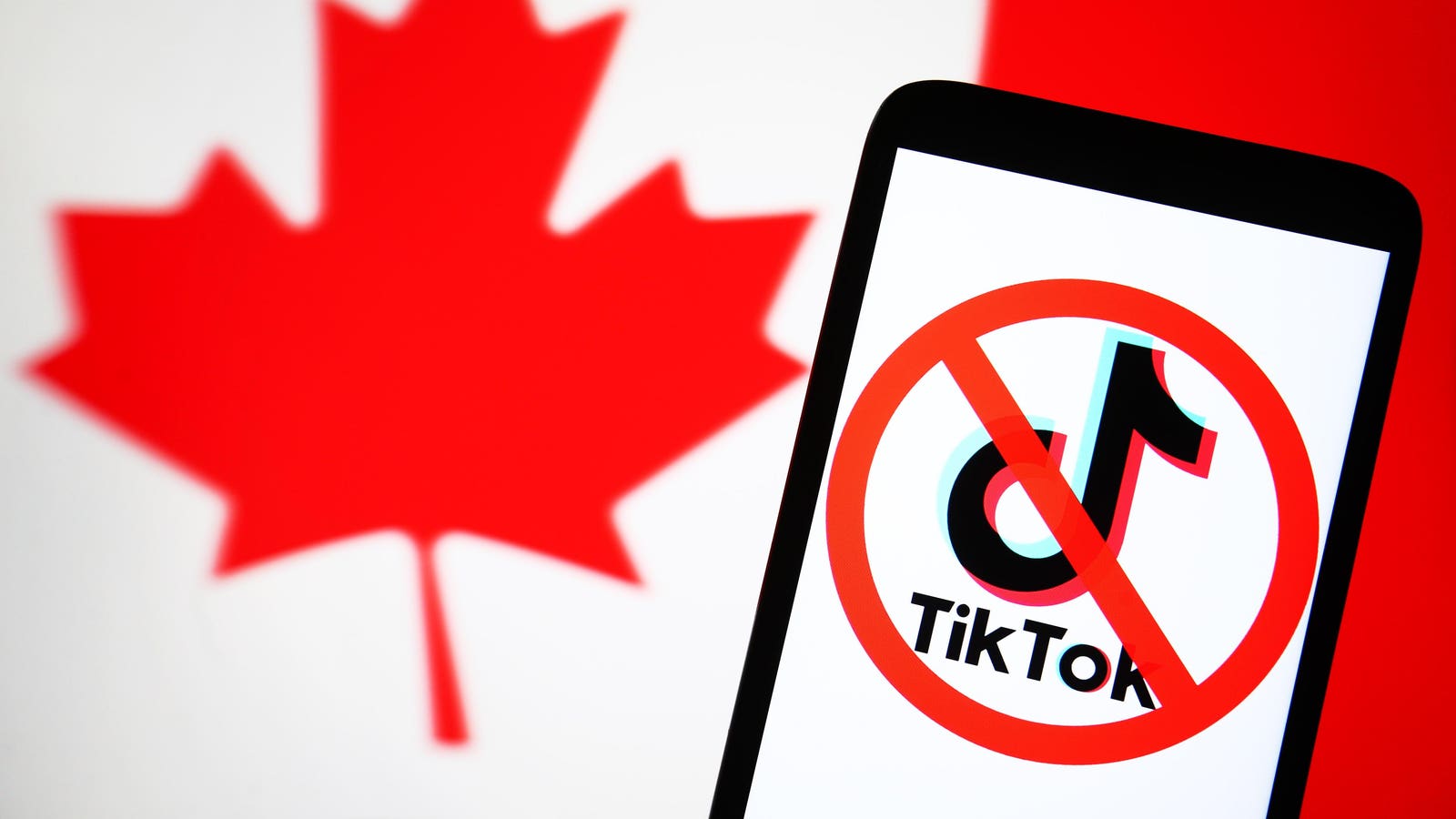Canada has ordered TikTok to shut down business operations.
SOPA Images/LightRocket via Getty Images
In a dramatic move that underscores growing global concerns about TikTok’s handling of user data, the Canadian government has ordered the social media giant to shut down its business operations in the country by the end of 2024.
The decision, announced on November 6, 2024, is based on national security concerns related to TikTok’s Chinese ownership and follows a year-long review of the app’s Canadian operations.
ByteDance is ordered to dismantle TikTok operations
The order mandates ByteDance, TikTok’s parent company, to dissolve its Canadian business operations by the end of next year. However, in one notable exception, Canadians will still be able to access the app itself. This approach reflects a balance between addressing national security risks and avoiding immediate disruption to the millions of Canadians who use the platform every day.
Canada’s Minister of Innovation, François-Philippe Champagne, emphasized that while the government is not blocking access to TikTok, it is acting on advice from national security agencies about the risks associated with ByteDance’s operations in Canada, stating, “the decision was based on information and evidence gathered during the course of the review and on the advice of Canada’s security and intelligence community and other government partners.”
Regarding citizen education and awareness, Champagne says, “It is important that Canadians adopt good cyber security practices and assess the potential risks of using social media platforms and applications, including how their information is likely to be protected, managed, used and shared by foreign actors, and to be aware of which country’s laws apply,” and urges Canadians to take advantage of the guidance provided by the Center Canadian Cyber Security in assessing these risks.
Champagne further emphasized that the government is not blocking access to the wildly popular social media app, “the government is not blocking Canadians’ access to the TikTok app or their ability to create content. Deciding to use a social media app or platform is a personal choice.”
TikTok’s National Security Concerns: A Global Issue
At the heart of Canada’s decision are concerns that TikTok could be forced to share sensitive user data with Chinese authorities under China’s 2017 National Intelligence Law.
This law requires companies to help gather intelligence if requested by the government – a condition that has raised alarm in many Western countries. TikTok collects large amounts of data from its users, including location information, browsing history, and biometric identifiers.
Canadian officials worry that such data could be used for espionage or other malicious purposes if accessed by foreign actors. This was a major reason why Canada previously banned TikTok from all government-issued devices. Those concerns mirror those raised by U.S. lawmakers and regulators who have considered TikTok’s potential threat to national security.
TikTok’s response: Legal battle ahead
TikTok has not taken this decision lightly and has vowed to challenge the shutdown order in court. In a statement issued on November 7, 2024, the company expressed strong opposition to the government’s move, which it claims will result in the loss of hundreds of jobs.
“Closing TikTok’s Canadian offices and destroying hundreds of well-paying local jobs is not in anyone’s best interest,” a TikTok spokesperson said in a statement. The company emphasized that it will fight this order through legal channels, assuring users that access to the platform will remain intact for the time being.
TikTok also reiterated its commitment to providing a platform where creators can continue to find audiences and businesses to thrive. This legal battle is not new territory for TikTok; it has previously opposed similar moves in other countries such as the United States, where it has faced scrutiny over its ties to China and potential national security risks.
Canada’s decision sets a precedent that could encourage other nations to take similar steps against TikTok or other foreign-owned technology platforms deemed dangerous. As governments around the world grapple with how best to regulate digital platforms and protect user data from foreign interference, this case could serve as a signal for future action.
ByteDance has been contacted for comment, but they have yet to respond. of official statement from TikTok in its entirety reads as follows:
“Shutting down TikTok’s Canadian offices and destroying hundreds of well-paying local jobs is not in anyone’s best interest, and today’s shutdown order will do just that. We will contest this order in court. The TikTok platform will remain available for creators to find an audience, explore new interests, and for businesses to thrive.”
